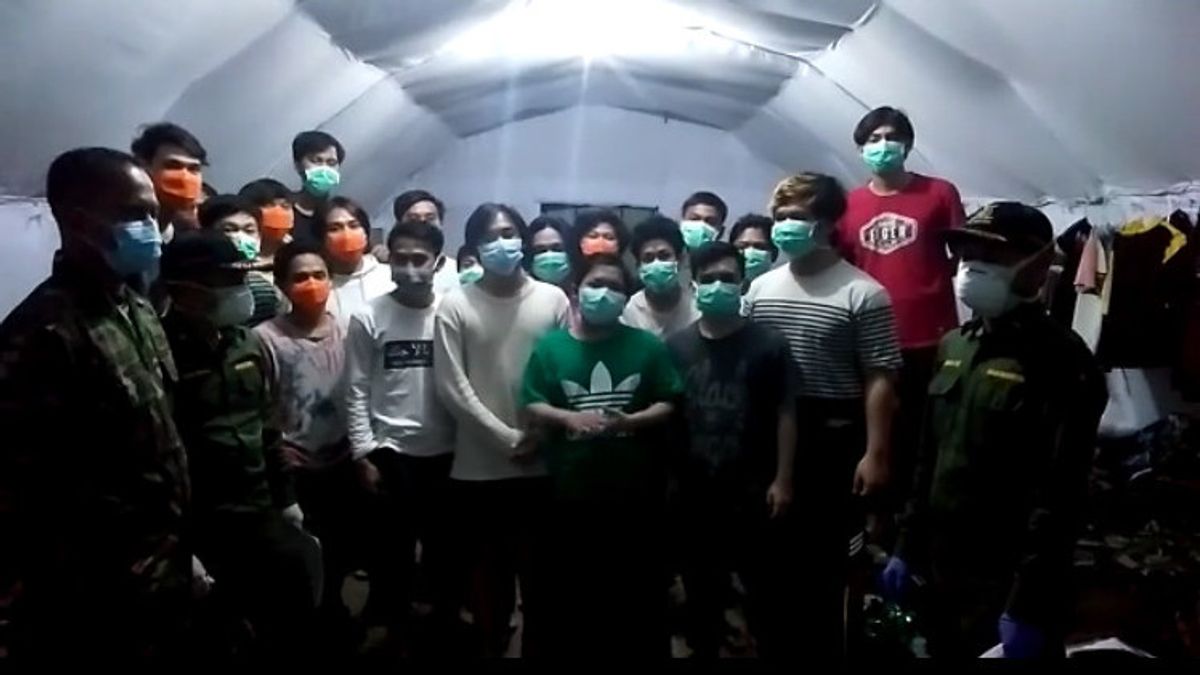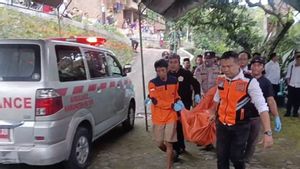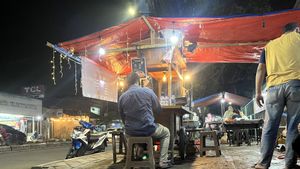JAKARTA - A total of 238 Indonesian citizens were evacuated from the city of Wuhan, Hubei Province, China. All of them are undergoing a 14-day quarantine period at the Raden Sadjad Ranai Airport Hangar, Natuna Regency, Riau Islands Province (Kepri).
During this quarantine period, it is necessary to think about the medical waste generated during the observation. Medical waste generated from this observation period, one of which is a mask. Because, the use of this mask is replaced every day.
Director General of Disease Prevention and Control of the Indonesian Ministry of Health, Anung Sugihantono, explained that the government will carry out a number of stages for waste management at the observation site. First, the waste that is there is put into the autoclave to kill bacteria and viruses. Although the autoclave does not use the maximum temperature, it is considered safe.
"The temperature is not maximal, but safe. That means there are no other contaminants. After the autoclave is put in a black bag, it will be destroyed in a hospital where the degenerator has a higher temperature," explained Anung, at the Balitbangkes Building, Jalan Percetakan Negara, Jakarta. Center, Tuesday, February 11.

Furthermore, for liquid waste, said Anung, the step taken is disinfection. Meanwhile, other wastes such as small trash, disposable paper towels, and others will be collected together and given a disinfectant. Then the object is buried at a certain depth in the hangar environment so that the contaminants are no longer there.
Even though until now the condition of Indonesian citizens in Natuna has been reported to be good, it is possible that there is exposure to the virus from the mask waste and the trash they use.
Anung said, the Ministry of Health has already prepared steps. However, until now there has been no definite decision on this matter.
"The waste is ideally burned at temperatures above 100 degrees Celsius, but this is not yet too concrete. We are now continuing to follow the development of the knowledge but at the same time preparing the conditions that might occur and be carried out in Indonesia. So I have not yet decided whether to burn it or what to do with it. , "he explained.
Waste recycling proposal
Researcher of the Indonesian Institute of Research Sciences (LIPI), Sugiyono Saputra, said that actually there are other ways the government can handle waste from the observations of Indonesian citizens in Natuna, namely by recycling.
"In the autoclave, the trash will look at it. It needs to be recycled, so it is possible to collect it according to hospital procedures. That is very possible," said Sugiyono, when contacted by VOI.
Sugiyino continued, as well as the burial after being given a disinfectant, it made it difficult for the waste to break down, especially if there was plastic.
"The other way is to recycle it. In accordance with the medical waste procedure. As with hospital waste, there is a procedure," he said.
However, not all of the waste from these observations can be recycled. One of them, used masks. Because, according to Sugiyono, viruses or bacteria can survive in inanimate objects for some time. Although it cannot live and develop because it is outside the living cell.
"He can not live on inanimate objects, but can survive. Can infect. This virus or bacteria can live when he finds a host cell, he can develop. Outside living cells, this virus can survive for a moment. But if in living cells he can. developing, "he explained.
Good morning from Natuna 🌤 This is the atmosphere when they exercise together. This activity is routinely carried out every morning so that the body is healthy and fit. Did you exercise this morning? 🏃 #waspadaviruscorona pic.twitter.com/IU0UyQA2UY
- Indonesian Ministry of Health (@KemenkesRI) February 6, 2020
Sugiyono explained, each type of virus has a different resistance. If you look at the SARS and MERS cases, the virus can last for three days in inanimate objects. However, for the corona virus from Wuhan, China, it is not yet known the resistance of this virus outside living cells.
Although it can survive in inanimate objects or survive outside living cells, said Sugiyono, there are other factors that can cause viral resistance to be lost, one of which is exposure to ultraviolet light.
"If the temperature is high, it will also be more susceptible to death. So it (the virus) will be more viable (outside living cells) in cold conditions. Like in Wuhan, it's cold," he explained.
According to Sugiyono, viruses or bacteria contained in waste can indeed be transmitted to humans. However, if the waste is disposed of before undergoing autoclave or given a disinfectant.
"If it has not been disinfected or autoclaved, there might be bacteria or viruses. But the waste that has gone through the second stage is very minimal (potential danger). Because the virus is very sensitive," he said.
Indonesian citizens in Natuna have a negative status for the corona virus. That means, said Sugiyono, there is no waste to transmit the virus. However, waste that has been handled properly and has gone through the autoclave stage or virus or bacteria disinfectant, cannot transmit anything.
"So the people in Natuna don't have to worry if the waste has gone through an autoclave or disinfection sprayed," he explained.
The English, Chinese, Japanese, Arabic, and French versions are automatically generated by the AI. So there may still be inaccuracies in translating, please always see Indonesian as our main language. (system supported by DigitalSiber.id)













